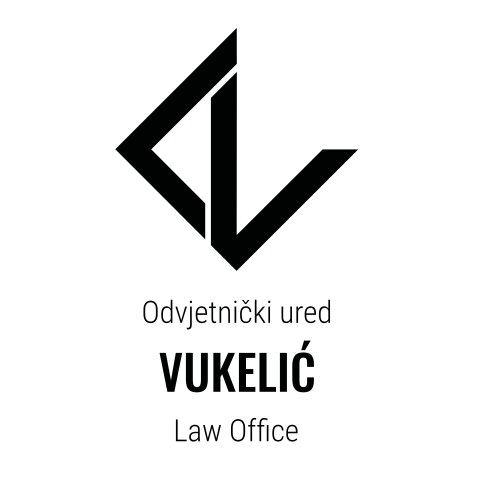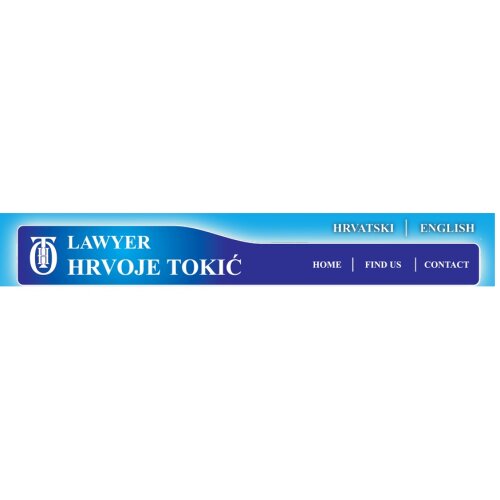Best Real Estate Lawyers in Croatia
Share your needs with us, get contacted by law firms.
Free. Takes 2 min.
Free Guide to Hiring a Real Estate Lawyer
Or refine your search by selecting a city:
List of the best lawyers in Croatia
About Real Estate Law in Croatia
Real estate law in Croatia governs the buying, selling, and leasing of properties within the country. Croatia's real estate market has grown steadily, attracting both local and international investors due to its picturesque landscapes and touristic appeal. The country's legal framework is designed to ensure transparency, security, and fairness in property transactions. The main legal document governing real estate in Croatia is the Act on Ownership and Other Real Rights, which outlines the rules regarding ownership, land registry, and property transactions.
Why You May Need a Lawyer
Engaging a lawyer for real estate transactions in Croatia can be crucial for several reasons:
- Property Transactions: Lawyers can help navigate complex transactions, ensuring all legal requirements are met and minimizing risks.
- Legal Documentation: They assist in drafting and reviewing contracts such as sale agreements, leases, and deeds to ensure legality and protection of interests.
- Due Diligence: Conducting thorough due diligence to verify property titles, ownership, and any existing liabilities.
- Dispute Resolution: Representation in cases of disputes over property lines, ownership claims, or breach of contract.
- Investment Guidance: Advising on legal implications of real estate investments, especially for foreign investors encountering local regulations.
Local Laws Overview
The Croatian legal system provides a structured framework for real estate transactions, as outlined in several key legal instruments:
- Ownership Rights: Croatian law recognizes various ownership rights, including full ownership, co-ownership, and temporary rights such as leases.
- Land Registry System: All properties must be registered in the Land Registry, which maintains records of ownership and other property rights.
- Foreign Ownership Restrictions: While EU citizens enjoy similar rights to Croatian nationals, non-EU citizens may face restrictions and require consent from the Ministry of Justice.
- Transfer and Taxation: The buyer typically incurs real estate transfer tax, and detailed records must be maintained for taxation purposes.
- Building and Zoning Laws: Local municipalities enforce regulations regarding construction, renovation, and land use to ensure compliance with urban planning policies.
Frequently Asked Questions
What are the main steps in purchasing property in Croatia?
The main steps include finding a property, negotiating terms, drafting and signing a preliminary contract, conducting due diligence, finalizing the purchase contract, and registering the transaction with the Land Registry.
Can foreigners buy property in Croatia?
Yes, EU citizens can purchase property under similar terms as Croatian citizens. Non-EU citizens may face more restrictions and are generally required to obtain approval from the Ministry of Justice.
What taxes are applicable when buying real estate?
Buyers typically pay a real estate transfer tax, around 3% of the property's market value, unless the transaction involves a new-build property, which may be subject to VAT instead.
Is it necessary to hire a lawyer for real estate transactions?
While not legally required, hiring a lawyer is highly recommended to ensure compliance with local laws, mitigate risks, and protect your interests throughout the transaction process.
How is property ownership registered in Croatia?
Property ownership is recorded in the Land Registry, a publicly accessible database maintained by local courts, ensuring transparency and legality in property transactions.
What legal protections are available for home buyers?
Buyers are protected by comprehensive due diligence procedures, necessitating clear title verification and compliance with contractual obligations before completion.
What should I consider when buying property in a coastal region?
Coastal properties may be subject to additional regulations like protected zones and maritime property laws; understanding these is crucial for compliance and investment security.
Can I lease property long-term in Croatia?
Yes, leasing is common in Croatia, with rental agreements typically negotiated for periods of one year or more. Legal assistance can help draft contracts to protect both parties' interests.
What are the penalties for non-compliance with building regulations?
Penalties can include fines, mandatory removal of unauthorized constructions, and restitution orders, making adherence to local building codes essential to avoid legal issues.
How can property disputes be resolved?
Disputes are often resolved through negotiation or legal mediation. Failing resolution, litigation in Croatian courts may be necessary, for which experienced legal representation is recommended.
Additional Resources
For more information and assistance, the following resources may be helpful:
- Ministry of Justice: Handles legal matters associated with property, ownership, and law practice standards.
- Croatian Land Registry: Provides access to property ownership and legal status information.
- Hrvatska Gospodarska Komora (Croatian Chamber of Commerce): Offers guidelines and support for businesses and real estate investors.
- Local Real Estate Agencies: Provide market insights, property listings, and guidance on legal procedures.
- Bar Association of Croatia: Helps locate qualified real estate lawyers for professional legal advice and representation.
Next Steps
If you need legal assistance in the field of real estate in Croatia, consider the following steps:
- Identify Your Needs: Determine whether you need help with transactions, legal documentation, or dispute resolution.
- Research Lawyers: Look for lawyers specializing in real estate law with experience in Croatian property transactions.
- Consult a Lawyer: Schedule a consultation to discuss your specific needs and seek professional legal advice.
- Understand Fees: Ensure clarity on legal fees and costs associated with the services you require.
- Remain Informed: Stay informed about local real estate laws and regulations to ensure compliance and protect your investments.
Lawzana helps you find the best lawyers and law firms in Croatia through a curated and pre-screened list of qualified legal professionals. Our platform offers rankings and detailed profiles of attorneys and law firms, allowing you to compare based on practice areas, including Real Estate, experience, and client feedback.
Each profile includes a description of the firm's areas of practice, client reviews, team members and partners, year of establishment, spoken languages, office locations, contact information, social media presence, and any published articles or resources. Most firms on our platform speak English and are experienced in both local and international legal matters.
Get a quote from top-rated law firms in Croatia — quickly, securely, and without unnecessary hassle.
Disclaimer:
The information provided on this page is for general informational purposes only and does not constitute legal advice. While we strive to ensure the accuracy and relevance of the content, legal information may change over time, and interpretations of the law can vary. You should always consult with a qualified legal professional for advice specific to your situation.
We disclaim all liability for actions taken or not taken based on the content of this page. If you believe any information is incorrect or outdated, please contact us, and we will review and update it where appropriate.
Browse real estate law firms by service in Croatia
Croatia Attorneys in related practice areas.
Browse real estate law firms by city in Croatia
Refine your search by selecting a city.

















